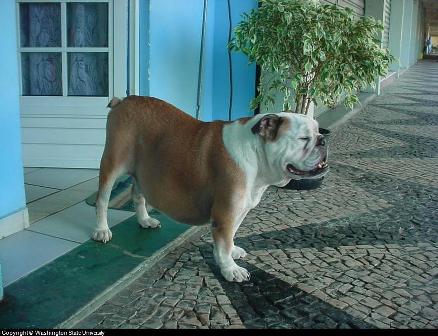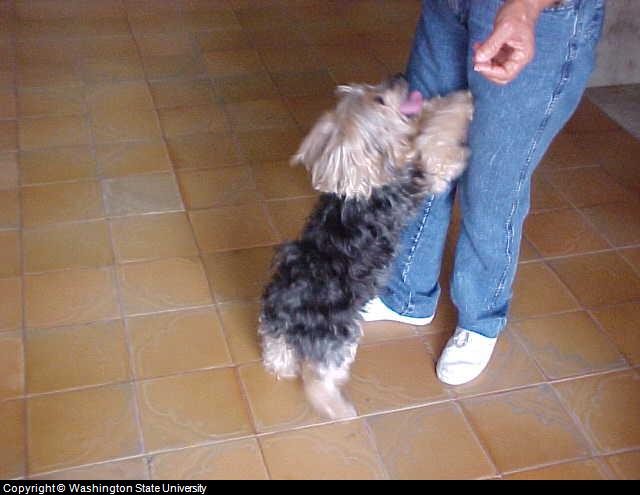Treatment of Heart Disease in Dogs
" Dog heart disease treatment is needed for various canine heart conditions such as failure, congestion, degeneration and irreversible pathological changes in cardiac features and functions. Since, heart disease in dogs is mostly progressive and cannot be completely cured, treatment is based upon supporting the system and enhancing its functionality. All the treatment options for heart diseased dogs, whether its medication, surgery or support and care is based upon reversing the symptoms and enhancing the strength of cardiac features and the immune system. Different dog heart treatment options are usually combined and critical care is needed to improve chances of survival and quality of life. "
Principles of Treatment for Canine Heart Disease:
Heart disease in dogs is always treated specifically, according to results compiled in light of a dog's history, a detailed physical examination and advanced procedures including radiography, electrocardiogram, echocardiograms etc. Specific treatment may include medication, surgery, support and critical care; selecting, combining and monitoring of specific treatments in heart diseased dogs varies from case to case.
However, there are certain principles which are followed in order to achieve the goal of reducing the effects of any symptoms and for supporting the overall health of the dog heart.
These treatment heart disease dog principles in brief are;
- Chronic stretch or progressive stress over the cardiac muscles should be minimized. This stretch causes irreversible injuries and irritation of cardiac fibers. Once the cardiac fibrous tissues die due to stretch, these tissues are replaced by connective tissues. This phenomenon in general is called “remodeling”, therefore through medication and cardiac support remodeling should be minimized.
- In almost all dog heart diseases, fluid
accumulates in the chest
cavity, especially around the heart and pulmonary features. This edema
filled fluid should be removed, because this causes wetness and
stiffness in the lungs, which results in an inequality and fatigue of
the
muscles responsible for ventilation.

Picture Treatment Heart Disease Dog Patient Suffering from Fluid Accumulation in Dog Abdomen - Overall cardiovascular strength and circulation should be improved. By improvement, not only blood circulation to vital organs, but also the chronic stretch in the left atrium can be effectively minimized. This is usually done with the help of specific therapeutics, but those have severe adverse effects, therefore natural remedies, vitamins and other supportive options are highly recommended.
- Heart rate and rhythm should be regulated as a priority.
Dog heart beats which are too slow
leaves the heart with an inability to evacuate its compounds,
while if the heart is functioning too, there isn't enough time to fill
up its
compounds and it consumes more oxygen. Also, a dog irregular heart rate
can surely cause sudden death due to ventricular fibrillation or
twitching.

Picture Treatment Heart Disease Dog
No Visible Symptoms - Veterinary Exam Showed bradycardia which is a slow dog heart rate - Oxygenation or the pulmonary mechanism of the cardiovascular system should be improved. Most of the arrhythmic symptoms (irregular heart beat) in dog heart disease are noticed due to inadequate oxygenation, therefore oxygenation support can certainly resolve arrhythmia.
- The immune system should be supported and the release of hormones (especially adrenal hormones) should be regulated. This will help in not only only fighting against heart disease, but also will minimize secondary problems in other systems of the body.
- Chances of congestion, blockage and thromboembolism should be minimized. Blockage in any part of the cardiovascular system, for any reason, can lead to sudden heart failure and ultimate death.
- If the blockage is caused by mature heartworms, these should be immediately killed and/or removed. These causes severe hindrance in pulmonary oxygenation and flow of blood from lungs. Similarly, any anatomical deformity confirmed through advanced diagnostic techniques should be addressed immediately (medically and surgically) to minimize chances of congestion and damage to cardiac features.
All of the aforementioned principles are followed to ultimately achieve goals of successful treatment heart disease dog therapy and treatment heart disease dog, which is indicated as the dog heart rate and respiratory rates are not increased at rest and a notable respiratory sinus arrhythmia is achieved. The status of such animal; after successful dog heart therapy is declared as “Functional Class 1”, as long as the condition remains controlled throughout any monitoring and follow-up checkups.
Treatment Plans:
Specific treatment heart disease dog includes the administration of different systemic cardiovascular drugs. These drugs consist of different classes and kinds of dog heart medicines such as:
- Positive Inotropes; These drugs are used to improve cardiac muscular strength for heart contraction. Different drugs such as Glycosides, Beta-Adrenergic Agonists, Phosphodiestrase inhibitors and ACE Inhibitors are used for this purpose in specific cardiac-myopathies and congestive canine heart failure.
- Vasoactive Drugs; These drugs specifically treat the tension and load on the vessels in body. In several congestive natured heart diseases in dogs and arrhythmia, these drugs are administered. Arterial dilators and Arterio-venous dilators are two different groups of vasoactive drugs.
- Antiarrhythmic Drugs; These drugs specifically treat arrhythmia or abnormal electrical activity in cardiac tissues. The irregular heart rhythm or rate is specifically treated and regulated with these drugs. These are divided into four different classes according to their effect on the myocardial (cardiac muscular) cells.
- Drugs acting
on blood or related organs;
In treating heart disease in
dogs, some specific drugs, are used to not only accomplish the
aforementioned goals, but also to act on the blood directly or blood
forming organs to enhance the effectiveness of therapy.
Hematinics are drugs used for enhancing amount of hemoglobin in blood. Vitamin B12, Folic Acid, Iron, Epoetin alfa and anabolic steroids are some examples of hematinics.
Anticoagulants are the drugs used for reducing the chance of any blockage in the cardiovascular system caused by thromboembolism. In some cases, hemostatics are required to control the thinning of blood, which leads to increased blood pressure.
- Surgery: Surgery is another specific treatment plan, which is always combined with the above mentioned medical plans for treatment heart disease dog. Surgery is indicated only in medical emergencies, where the anatomical deformities, blockages, congestion and any severe cardiomyopathy leaves a dog with the risk of sudden death. Surgery is therefore performed to save the life of the patient. Surgery should be combined with the appropriate specific and supportive medical approaches outlined above.
- Dog heart transplants: It is becoming more common in veterinary medicine to transplant organs, with an emphasis on the kidneys. Dog heart transplants are not considered feasible for several reasons:
- The inability to collect a healthy heart from a brain dead dog. The situation is further complicated by veterinary hospitals that do not have the necessary equipment to detect brain death
- A lack of infrastructure to capture a heart at the time of an accidental dog death
- Taking a living dog's heart would kill the donor
Supportive Treatment of Heart Disease in Dogs:
Along with specific dog heart treatment plans, i.e. medication, surgery and supportive care is essential to achieve the goals of effective canine heart care. The goals of strengthening the cardiovascular system, improvement of circulation, heart muscle support and strengthening can be effectively achieved with supportive measures.
Natural remedies and multi – vitamins ans nutritional supplements that are some of options for supportive care. In some cases, specific heart strengthening therapeutics may have a risk of heart failure and worsening of cardio-myopathies, (especially in older dogs with suppressed immunity). Natural remedies have been proven to be an effective alternative with few or no side effects. Natural Remedies to consider include:
- Heart and Circulation Tonic: These types of products are formulated to help the body improve overall heart condition by strengthening the veins, improving circulation and overall heart health.
- Immunity and Liver Support: This product is formulated to boost immune system functioning.
- Energy Tonic: This product in particular helps to boost energy levels by supporting blood flow and oxygen in the body.
Natural remedies are not a dog heart cure, but a way to help speed recovery and then live with a canine heart condition. Consult your veterinarian about how this approach can work along side specific treatments recommended.
Have A Canine Heart Disease Question or Helpful Story?
Have a Question, Request or Want to Share a Story that could help others? Our editors and pet health professionals will answer 1 question each week for free!
We will do our best to get back to you quickly (it depends on how many questions we receive each day). If you do require an immediate response we suggest using this online dog veterinary service that is available now.
|
|
References:
Merck Veterinary Manual (Merck & Co.)
Washington State University - College of Veterinary Medicine
This site accepts advertising and other forms of compensation for products mentioned.
Such compensation does not influence the information or recommendations made.
We always give our honest opinions, findings, beliefs, or experiences.
All rights reserved. © 2018 Dog Health Handbook.




